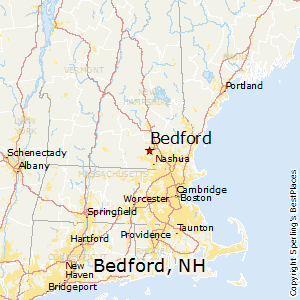My hometown of Bedford, New Hampshire has a reputation within the state for a few things, most notably its “snotty rich people” and its high-ranking public schools. When I was four years old, my parents moved our family to the town – despite not fitting the stuck-up, wealthy stereotype – in large part because of the public school system. As the town’s population grew, so did the school district’s recognition. In 2013, Forbes listed Bedford, NH as the number two “best school district for your housing buck” in the entire country (Fisher 2013). Other school ranking sites, such as US News and World Report or Niche, consistently have Bedford in their top 10 school districts in the state. I recognize that I am extremely fortunate to have attended these public schools for thirteen years and I want to help make this education available to more low income families who may not be able to afford a place to live in Bedford.

In 1991, the New Hampshire Supreme Court ruled that every municipality with zoning restrictions must provide “realistic opportunities” for the development of affordable housing (Johnston 2009). In Bedford, this has played out with the construction of 812 multifamily apartments, 102 of which are reserved as “workforce housing” (Houghton 2019). Currently, there are multiple new apartment complexes being built in town, much to the dismay of many residents. Of the 313 new units under construction, 111 of them will be listed at least 50% below the market rate in an effort to provide more affordable housing (Houghton 2019). This has been the subject of quite the local controversy. An opinion piece in the town’s newspaper argued that affordable housing projects are an “eyesore,” would “poison watersheds, increase traffic on existing roads that already cannot handle the flow,” and, “reduce the desirability and value of the single-family residences around them” (Aitken 2019). Another resident claimed, “it is a right we have as a community — to determine how our town grows,” in protest of the state government’s pressure to increase the number of affordable housing units in Bedford (Houghton 2019). Community members like these two want to prevent Bedford from becoming “a city” – an obvious dog-whistle signifying their desire to maintain the town’s status as exclusive, wealthy, and white. These people represent one of the biggest challenges against organizing for affordable housing in my community.